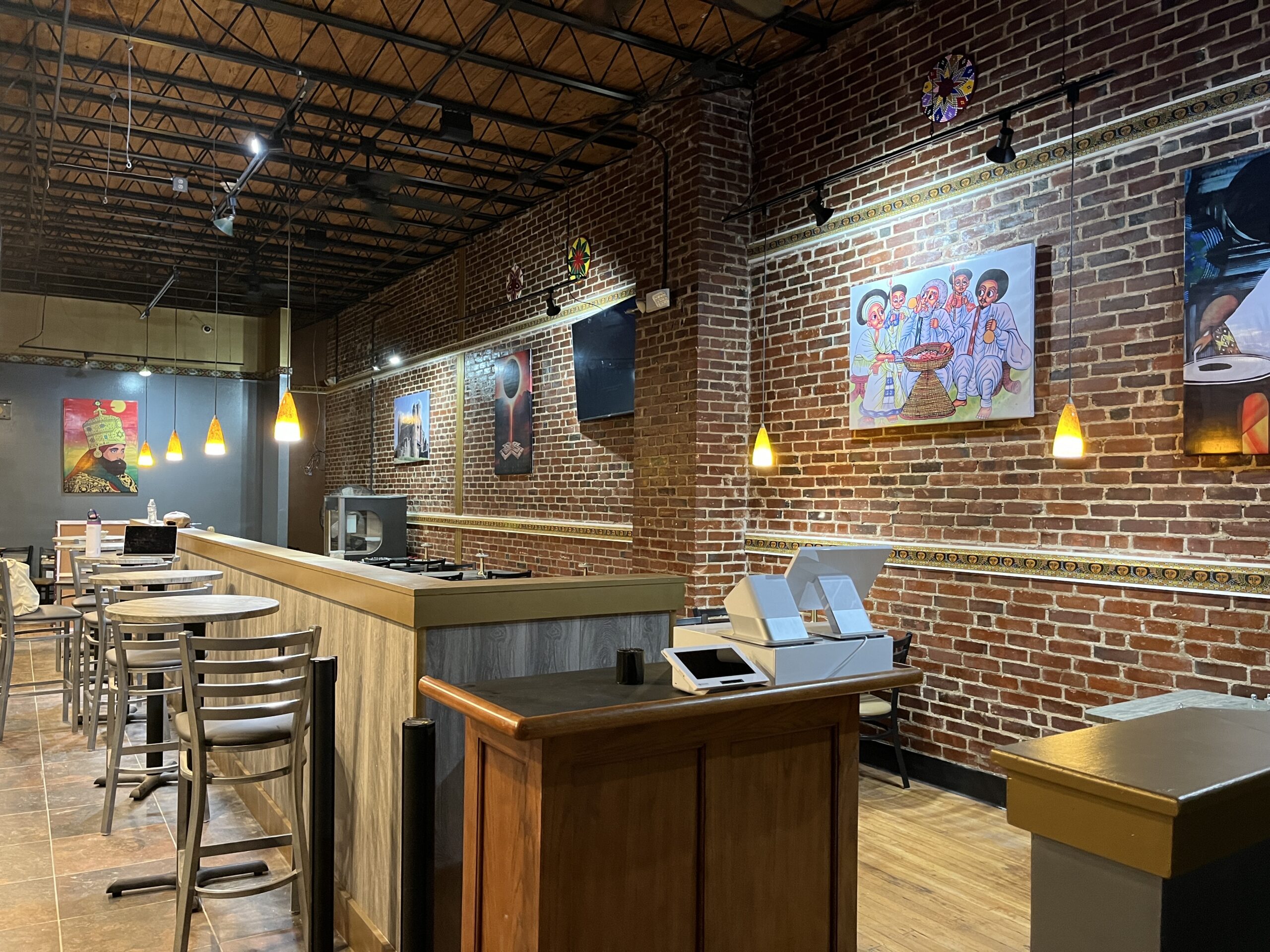New Ethiopian restaurant offers community building through cultural exchange
Habesha Ethiopian Restaurant will open on Oct. 12, featuring flavorful, love-filled dishes.

Elspeth Yeh, Contributing Photographer
A new restaurant is preparing to welcome the hungry pedestrian in New Haven’s Audubon District, offering a taste of Ethiopia’s vibrant culture through food, music and decor. Habesha Ethiopian Restaurant and Bar will celebrate its grand opening on Saturday, Oct. 12.
Habesha is a family-run establishment owned and operated by New Haven locals Solomon Fiseha and Tigist Desalegn. The restaurant’s name, “Habesha,” is the name of the Semitic-speaking people of Ethiopia — a nod to the dynamic cultural tradition that the husband-and-wife duo is passionate about sharing with their customers — even those with a more sensitive palette.
“Our food, it’s not too spicy, it’s normal and mild. And once you start eating it, then after that, you get addicted to it,” Fiseha joked. “99 percent of the product is coming from Ethiopia. So that’s what makes me happy: to introduce everyone to our culture.”
Fiseha stressed how bringing people together is a core aspect of Ethiopian cuisine, encouraging patrons to come with groups of loved ones to enjoy shared dishes.
“The beauty of our food is, you’re going to eat together. You’re going to use your bare hand, you’re going to break the injera, scoop with the sauce, and then sometimes we feed each other. That is one way of expressing your love,” Fiseha said.
Opening Habesha has been a whole family ordeal. While Fiseha manages the restaurant, his son Yossias designed and remodeled the interior space, and his daughter Yeabsira has been a crucial support throughout the process.
Fiseha’s wife, Desalegn, brings the kitchen to life with the savory, spiced aromas of her renowned cooking. Fiseha recommends that diners order the Doro Wat, a chicken stew and a traditional staple of Ethiopian cuisine. He proudly boasts that Desalegn’s take on the dish is particularly expert.
When asked what makes Habesha unique, Fiseha told the News, “Well, the key for us is customer satisfaction. We want to make everyone who’s walking into our restaurant happy and then satisfied.” In a Yale University Properties press release, Desalegn added, “Through our restaurant, we want people to experience not just the flavors of Ethiopia but also the warmth and hospitality that are central to our way of life.”
The New Haven community is mutually receptive to Habesha’s opening. While many are no strangers to Ethiopian cuisine, thanks to the popular Lalibela Ethiopian Restaurant, locals expressed enthusiasm to try Habesha.
“I think it’s going to be very big in the public’s eyes, especially for college students, so I think it’s going to be awesome. I’m very excited,” Noah Mihalko, a recent graduate of Southern Connecticut State University who now works in the New Haven Area, said.
Residents are also pleased to welcome another small, locally-owned business to the Elm City’s commercial landscape.
Ibrahim Cheek, who lives in New Haven with his young family of three, appreciates new economic activity coming into the area.
“I think if they’re local and they’re not a big brand or anything like that, I think that’s a good thing. So, it looks like it’s moving in the right direction, for sure,” Cheek said.
Habesha also hopes to foster a thriving relationship with Yale’s community of faculty, students and staff. Fiseha himself currently works in Yale’s Department of Technology Services and hopes the restaurant can serve as a space for Yale students to gather. Further down the road, he anticipates opening the space for student organizations to hold events.
Student organizations such as the Yale Ethiopian and Eritrean Students’ Association are eager to welcome Habesha to New Haven. President Rebekah Alemayehu ’26 shared what this addition to the city means to her.
“Personally, Habesha food has not only been a cure for homesickness, but a space where I can hear my language, taste the food so familiar to me, and cultivate a pride in my culture in a new environment,” she said. “As the Ethiopian-Eritrean community grows on campus, so should our representation and spaces, and I am comforted to know that the incoming freshmen will have a greater access to the familiarity of their culture.”
Having a new restaurant close to campus will mean more representation of Ethiopians in the area.
There is already a buzz about the restaurant among non-Ethiopian communities on campus as well. Kevin Guillen ’26 discussed visiting with his friends while mingling on Cross Campus.
“My first time having Ethiopian food was at an event. They catered Lalibela, and it was really, really good, so I really like Ethiopian food,” he said.
Emi Glass ’26 also had her first experience with Ethiopian cuisine dining at Lalibela — a fact that does not deter her from visiting Habesha once it opens.
“I’m willing to try new foods all the time, so it’ll be good to have a new place to try. I’m looking forward to the new place because I’m in Murray, so I think it’s a lot closer,” she said.
Whether there will be a rivalry as monolithic as New Haven’s pizza scene between the two Ethiopian restaurants remains to be seen, but Cheek predicts a certain level of competition.
“There’s not a lot of Ethiopian restaurants. I mean, they’re gonna definitely get compared, probably, because that’s what everyone’s familiar with,” he said.
Through a combination of traditional Ethiopian dishes and family-run values, Habesha promises to add a unique and flavorful option to New Haven’s growing list of eateries.
Habesha is located at 46 Whitney Ave.
Interested in getting more news about New Haven? Join our newsletter!







